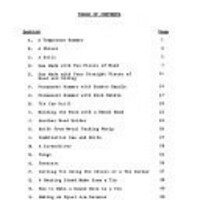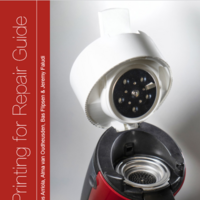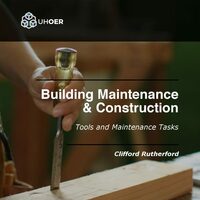Search
Books+
Searching 1,73 books
Search related to the career Tool and Die Maker
Responsibilities of a Tool and Die Maker:
1. Interpreting blueprints and specifications: Tool and Die Makers are responsible for reading and understanding technical drawings, blueprints, and specifications to determine the requirements for manufacturing tools and dies.
2. Designing and creating tools and dies: They use their knowledge of materials, machining techniques, and precision measurement tools to design and construct tools and dies. This involves using computer-aided design (CAD) software, operating machinery, and utilizing various hand tools.
3. Performing precision machining: Tool and Die Makers operate a variety of machines, such as lathes, milling machines, grinders, and CNC machines, to shape and finish components with high accuracy and precision.
4. Inspecting and testing: They conduct thorough inspections and tests to ensure that the tools and dies meet the required specifications and quality standards. This involves using measuring instruments, such as micrometers, gauges, and calipers, to verify dimensions and tolerances.
5. Repairing and maintaining tools and dies: Tool and Die Makers are responsible for repairing and maintaining existing tools and dies to ensure their optimal performance. They troubleshoot issues, identify problems, and make necessary adjustments or repairs.
6. Collaborating with engineers and designers: They work closely with engineers and designers to discuss tooling requirements, provide input on design improvements, and contribute to the overall manufacturing process.
7. Ensuring safety and compliance: Tool and Die Makers adhere to safety protocols and regulations to maintain a safe working environment. They also ensure compliance with industry standards and quality control procedures.
8. Documenting and reporting: They maintain accurate records of tool and die specifications, modifications, repairs, and maintenance activities. They may also provide reports and documentation for quality control purposes.
9. Continuous learning and skill development: Tool and Die Makers stay updated with advancements in tooling technology, machining techniques, and industry trends. They actively participate in training programs and workshops to enhance their skills and knowledge.
10. Problem-solving and troubleshooting: They possess strong problem-solving skills to identify issues, analyze root causes, and implement effective solutions to ensure efficient tool and die production.
Overall, Tool and Die Makers play a crucial role in the manufacturing industry by producing high-quality tools and dies that are essential for various production processes.
Source: Various AI tools
Uhandisi
Books tagged engineering
Searched in English.














